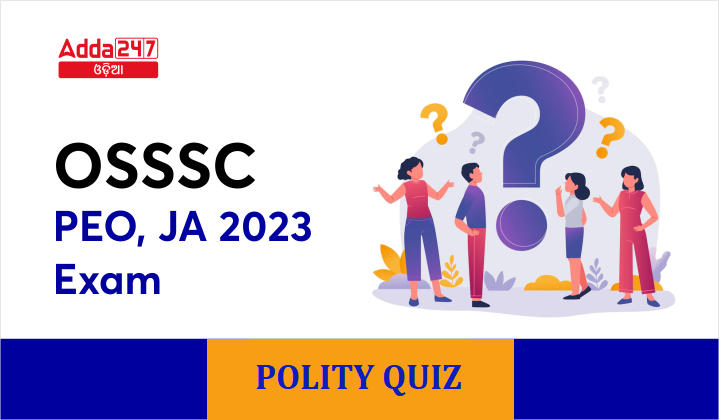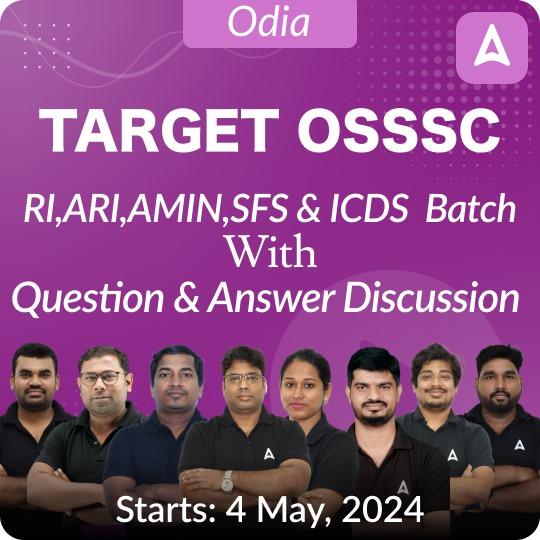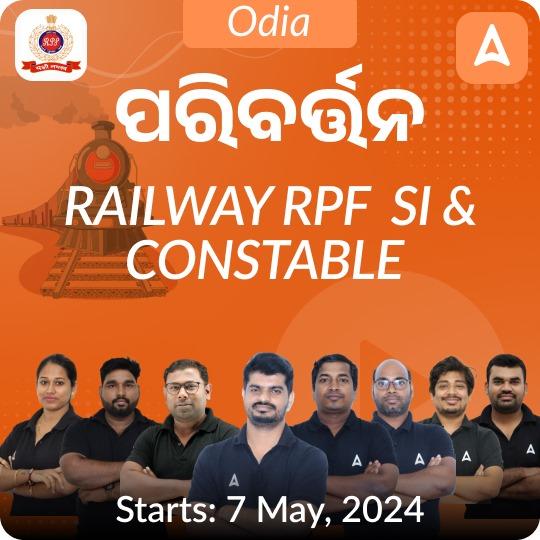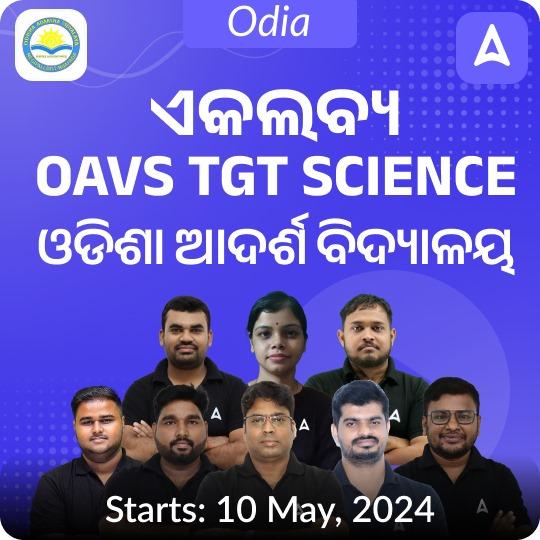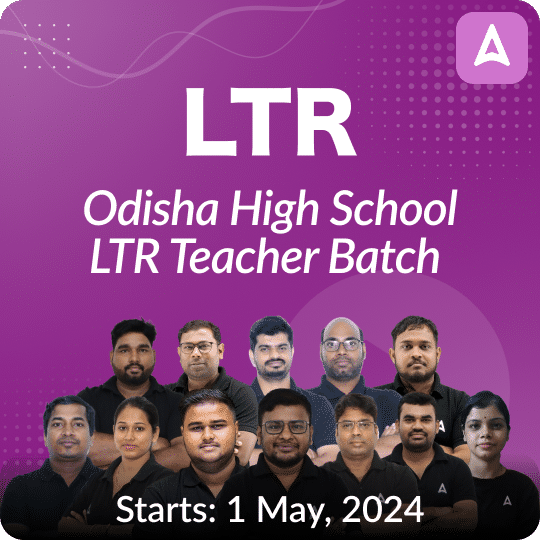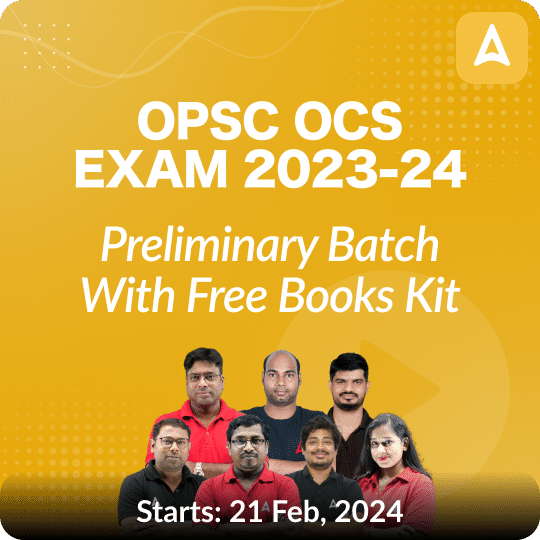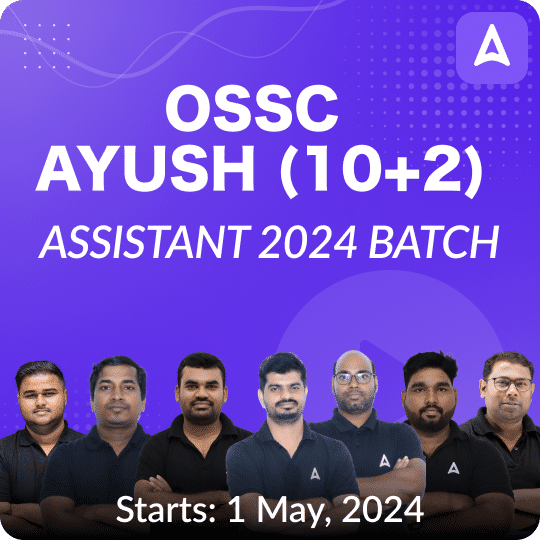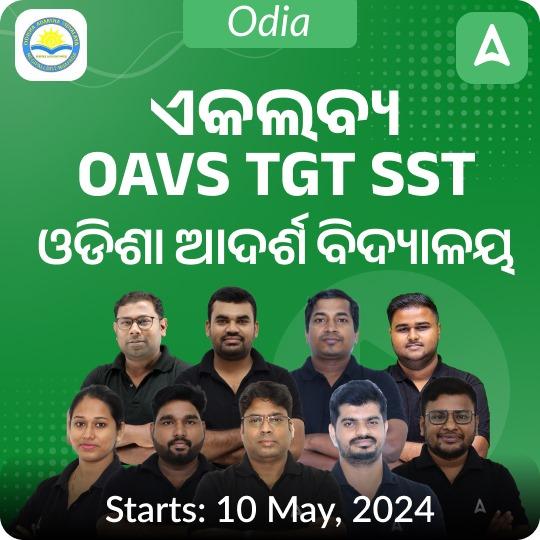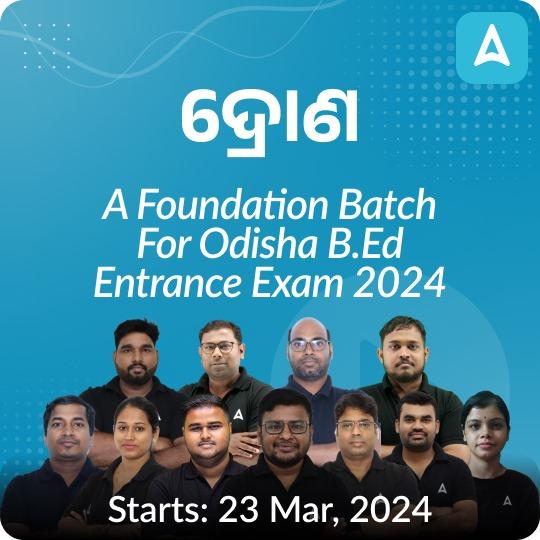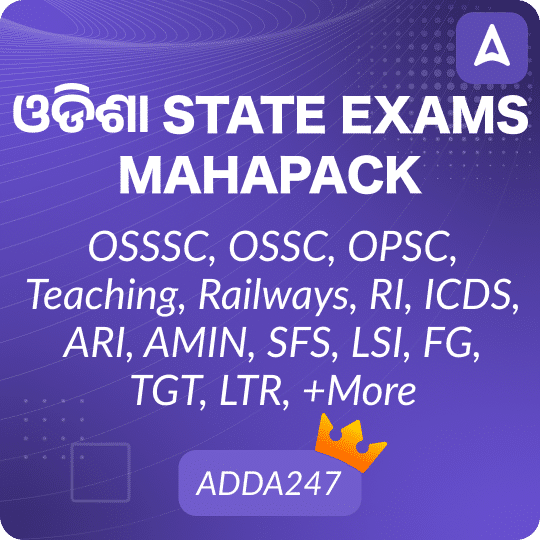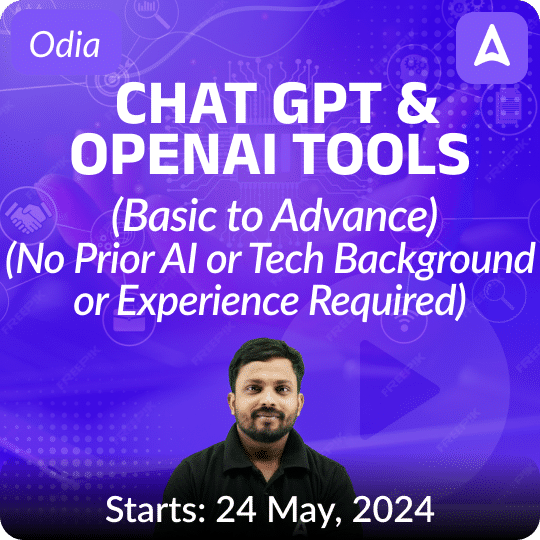Polity Quiz: Polity MCQs are essential for OPSC, OSSC, OSSSC & Other State Exams. Aspirants willing to apply for the various Government exams in 2023 must go through the topics of General Awareness for competitive exams, as the Polity is a key part of the syllabus.
Download ADDA247 Odia APP – Appear Latest Exam Test Series & Live Classes
Q1.Which of the following is not considered a Democracy?
(a) USA
(b) Norway
(c) India
(d) China
Q2. The maximum duration for which office of President of India can remain vacant
(a) 2 months
(b) 6 months
(c) 3 months
(d) It cannot remain vacant
Q3. The Constitution originally provided for the right to property under Articles 19 and 31.Which among the following amendments removed the right to property from the list of fundamental rights.
(a) 42nd Amendment Act, 1976
(b) 44th Amendment Act, 1976
(c) 42nd Amendment Act, 1978
(d) 44th Amendment Act, 1978
Q4. In every election, Election Commission of India issues a Model Code of Conduct for political parties and candidates to conduct elections in a free and fair manner.
When did it issued the Code of Conduct for the first time
(a) 1951
(b) 1968
(c) 1971
(d) 1991
Q5. From the following languages given below pick out of the one which is official language of a Maharashtra—
(a) Hindi
(b) Urdu
(c) Marathi
(d) Gujarati
Q6. Which of these is NOT included as a Fundamental Right in the Indian Constitution?
(a) Right to freedom to speech
(b) Right to equality before Law
(c) Right to constitutional remedies
(d) Right to equal wages for equal work
Q7. Which fundamental right is called as the heart and soul of the Indian Constitution?
(a) Right to constitutional remedies
(b) Right to freedom to speech
(c) Right to equality before Law
(d) Right to freedom of religion
Q8. Right to property was removed from the list of Fundamental Rights during the rule of:
(a) Indira Gandhi Government
(b) Morarji Desai Government
(c) Narasimha Rao Government
(d) Vajpayee Government
Q9. Political right does NOT include which of the following?
(a) Right to vote
(b) Right to life
(c) Right to contest in election
(d) Right to lodge complaint with executive bodies of the Government
Q10. Which of the following rights is NOT granted by the Constitution of India at present as a fundamental right?
(a) Right to equality
(b) Right to freedom
(c) Right to property
(d) Right against exploitation

Solutions
S1.Ans.(d)
Sol. Four divisions, the legislative, executive, judiciary, and military, comprise the Communist Government of the People’s Republic of China.
S2. Ans.(d)
Sol. The office of President of India cannot remain vacant.
Article 65 of the Indian constitution says that the Vice-President of India will have to discharge the duties, if the office falls vacant due to any reason other than the expiry of the term.
S3. Ans.(d)
Sol. The Constitution originally provided for the right to property under Articles 19 and 31.
The provisions relating to the right to property were changed a number of times. The 44th Amendment of 1978 removed the right to property from the list of fundamental rights.
A new provision, Article 300-A, was added to the constitution, which provided that “no person shall be deprived of his property save by authority of law”.
S4. Ans.(c)
Sol.Holding periodic, free and fair elections are essentials of a democratic system and a part of the basic structure of the Constitution.
In every election, it issues a Model Code of Conduct for political parties and candidates to conduct elections in a free and fair manner.
The commission issued the Code of Conduct for the first time in 1971 for the 5th Lok Sabha elections and has revised it from time to time.
S5. Ans.(c)
Sol.
Marathi is the official language of Maharashtra and co-official language in the union territories of Daman and Diu and Dadra and Nagar Haveli.
S6. Ans.(d)
Sol.
The six fundamental rights recognised by the Indian constitution are the right to equality, right to freedom, right against exploitation, right to freedom of religion, cultural and educational rights, right to constitutional remedies.
S7. Ans.(a)
Sol.
Dr. B.R.Ambedkar called ‘Article 32’ of the Indian Constitution i.e. Right to Constitutional remedies as ‘the heart and soul of the Constitution’.
S8. Ans.(b)
Sol.
The 44th amendment to the Indian Constitution was passed after the revocation of internal emergency in 1977. It was instead made a constitutional right under Article 300A which states that. ” No person can be deprived of his property except by authority of law.”
S9. Ans.(b)
Sol.
The Constitution of India provides Fundamental Rights under Chapter III. Article 21. Protection Of Life And Personal Liberty: No person shall be deprived of his life or personal liberty except according to procedure established by law.
S10. Ans.(c)
Sol.
In the year 1977, the 44th amendment eliminated the right to acquire, hold and dispose of property as a fundamental right. However, in another part of the Constitution, Article 300 (A) was inserted to affirm that no person shall be deprived of his property save by authority of law.

